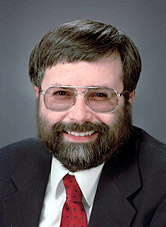Washington, D.C.
Values and morality, often grounded in religious belief, have shaped the political contours of the stem cell research debate. As Congress and President Bush take up the issue, the Pew Forum provides answers to the following questions.
Featuring: John Green, Senior Fellow in Religion and American Politics, Pew Forum on Religion & Public Life

Some analysts contend President Bush plans to veto this legislation because stem cell research is an issue of great concern to conservative evangelical Christians, which comprise much of his political base. How concerned are evangelical Christians about stem cell research?
Many conservative evangelicals are deeply troubled by stem cell research, and many other conservative Christians, including Catholics, object as well. So President Bush’s promise to veto the legislation has appeal beyond the evangelical community.
To what extent might a Bush veto solidify his conservative Christian base?
A veto is likely to help Bush maintain his strong backing from evangelicals and also strengthen his support among other conservative Christians, including Catholics. This effect will have two dimensions: A veto will please these groups substantively, but it will also be a powerful symbol that the president keeps his word.
What aspect of stem cell research do many conservative Christians object to?
Since many conservative Christians consider embryos young human beings, they deeply object to the destruction of them to produce stem cells. The issue is seen as an extension of the debate about abortion and personal moral behavior.
What role does religion play overall in the way voters see the stem cell issue?
Traditional morality lies at the heart of the opposition to stem cell research. For Catholics, this opposition arises from a consistent and comprehensive view of life — the same values that also lead many Catholics to oppose the death penalty and the war in Iraq. For evangelicals, the theological basis is less comprehensive and focused more on appropriateness of individual behavior and personal responsibility.
How does this issue compare in political intensity to abortion and gay rights?
Overall, the stem cell debate does not generate as much intensity as abortion or gay rights. Nonetheless, it’s quite important to many social conservatives and is often connected to conservative views on abortion and gay marriage.
Is stem cell research likely to be a political issue in the congressional campaigns this year?
It already is in some places, such as the Missouri Senate race. But because the issue divides the major parties internally, it may not affect as many races as other issues.
Who is likely to make it an issue, advocacy groups or the campaigns themselves?
It all depends on the race. In contests where candidates are clearly identified with conservative Christians or more liberal religious or secular groups, the campaigns themselves will be the primary conduits for highlighting the issues. The advocacy groups are likely to make every effort to bring up the issue in other races.
Additional Resources
Pew Forum fact sheet on religion and stem cells Pew Forum Bioethics Issue Page Pew Forum list of advocacy and other groups




